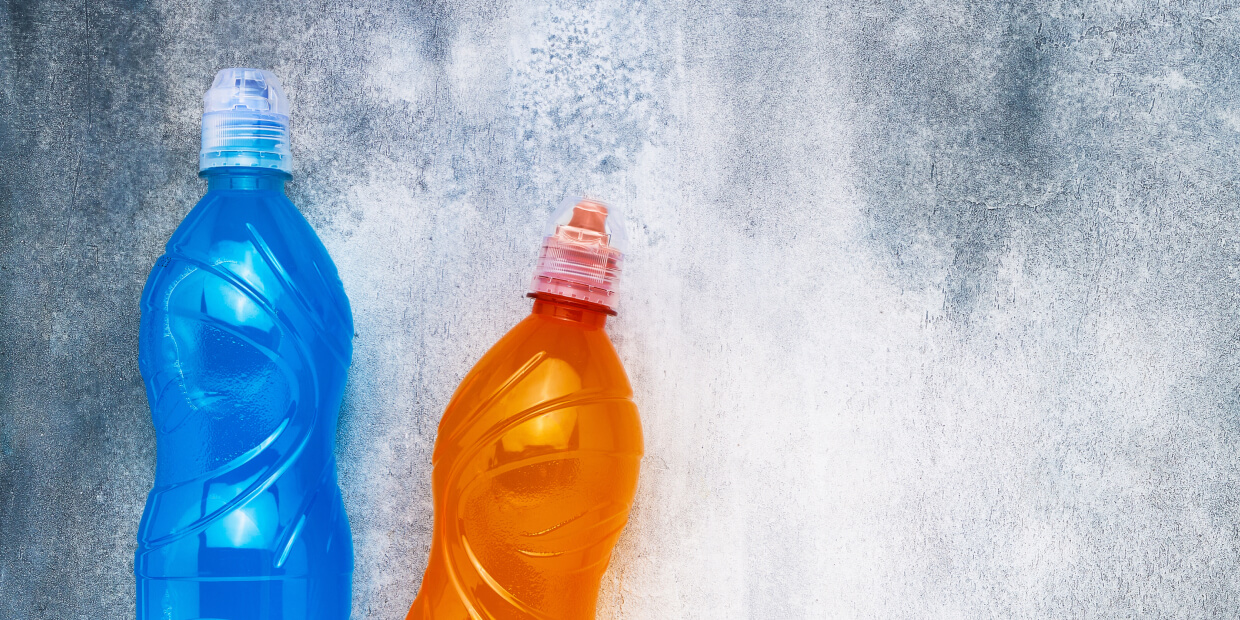Over the past few years, energy drinks have become a popular pick-me-up beverage for a growing number of consumers worldwide.
Energy drinks typically contain caffeine, sugar, vitamins, minerals, and other ingredients that may have stimulating effects.
But, are energy drinks halal? This is an important question among the growing Muslim population.
This article takes a closer look at what makes a beverage halal, which popular energy drinks meet these criteria, the halal certification process for beverages, and why it’s crucial for beverage providers.
Read More: What is a Halal Certificate And Who Provides It?
Contents
What Makes a Beverage Halal?
For a beverage to be halal, it must meet the following criteria:
- It must not contain any ingredients that are haram (forbidden) or doubtful (such as gelatin, animal-derived enzymes, alcohol, or artificial flavors from animal sources).
- During the production process, it must not be in any contact with haram substances (such as alcohol or pork fat).
- It must not be mixed with haram beverages (such as wine or beer).
What Energy Drinks Are Halal?
Considering the criteria of halal beverages, energy drinks can be halal if they do not contain alcohol or any other haram substances.
While some popular energy drinks might not explicitly advertise halal certification, it’s crucial to remember that consumers should look closely at the label and reach out to the manufacturer to determine if the drink is halal.
Halal Certification Process for Beverages
For beverage providers wanting to target the growing Muslim population, acquiring halal certification is key.
For a beverage to be Halal-certified, it undergoes a rigorous and comprehensive examination process carried out by a reputable halal certification body.
The halal certification process for beverages at the American Halal Foundation (AHF) involves:
- Application and documentation: Manufacturers are required to submit an application, along with detailed information about ingredients, sourcing, production processes, and quality control procedures.
- Facility audit: AHF’s Account Executive will then conduct thorough audits of the production facilities to ensure compliance with halal standards. This involves examining equipment, storage areas, and documentation related to ingredient sourcing.
- Product testing: Samples of the beverage undergo testing in certified laboratories to verify the absence of prohibited substances and adherence to halal regulations.
- Certification and ongoing monitoring: Once all requirements are met, AHF grants a halal certificate, usually valid for a specific period, after which re-certification is necessary.
Read More: Halal Certification for Beverages
Importance of Halal Certification for Beverage Providers
Halal certification is not only important for consumers who want to adhere to halal, but also for beverage providers who want to tap into the growing market of halal-conscious customers.
According to a report, the global halal food and beverage market size was valued at $718.9 billion in 2020 and is expected to reach $1 trillion by 2028.
Some of the benefits of halal certification for beverage providers are:
👉 Increased Customer Trust and Loyalty:
Halal certification gives customers confidence and peace of mind that the product they are buying is halal compliant and safe to consume. A halal certificate inspires trust and assurance amongst Muslim consumers.
This trust is likely to translate into customer loyalty and retention, as modern Muslim consumers are more likely to buy from a brand that they trust and respect.
Did You Know: A recent study reveals that over 80% of halal consumers tend to stick with their preferred brands, significantly higher than the average consumer loyalty rates.
👉 Expanded Market Reach:
Halal certification opens up new opportunities and access to the large and diverse market of halal consumers, especially in regions where Islam is the dominant or a significant religion, such as Asia, the Middle East, Africa, and Europe.
It also allows beverage providers to cater to the growing demand for halal products from non-Muslim consumers who are interested in ethical, healthy, and sustainable food choices.
Read More: Halal Certification for Export to UAE, Saudi Arabia, and GCC/ MENA Countries
👉 Enhanced Brand Reputation:
Halal certification enhances the brand reputation and value of beverage providers, as it demonstrates their commitment to quality, integrity, and social responsibility.
This can give F&B providers a competitive edge over other brands that are not halal certified, subsequently enabling them to charge premium prices and enjoy lucrative profit margins.
Future of Halal F&B
The future of halal food and beverage (F&B) is bright and promising, as the industry continues to evolve and innovate to meet the changing needs and expectations of halal consumers.
Some of the trends and developments that are shaping the future of halal F&B are:
➡️ Increased Awareness and Education:
Halal consumers are becoming more aware and educated about the halal standards and requirements, as well as the benefits and advantages of halal products. Halal providers are therefore leveraging technology and solutions to improve their product quality, safety, traceability, and delivery.
➡️ Diversified Product Offerings:
Halal consumers are looking for more variety and diversity in their product choices, as they want to enjoy different flavors, cuisines, and experiences. Halal providers are responding by offering more options and alternatives in their product portfolio.
➡️ Sustainability focus:
There will be an increased focus on sustainability within the halal F&B industry, encompassing ethical sourcing, eco-friendly packaging, and responsible waste management. This has given rise to the production of halal-certified organic, vegan, low-calorie, and other premium products.
Read More: How Halal and Ethical Consumerism Go Hand-in-Hand
Wrapping Up
To wrap it up, energy drinks can be halal– however, consumers are recommended to check for halal certification from a reputable and recognized halal authority to ensure its halal nature.
The rise in Muslim population and its increasing spending power presents a significant opportunity for F&B providers to dominate a highly lucrative consumer market. Businesses are therefore recommended to seek halal certification to penetrate the growing halal market– both locally and abroad.
Interested in learning more about the halal certification process for your business? Fill out your details below to get in touch with our experts.
Get in Touch
Connect with a halal certification expert.








